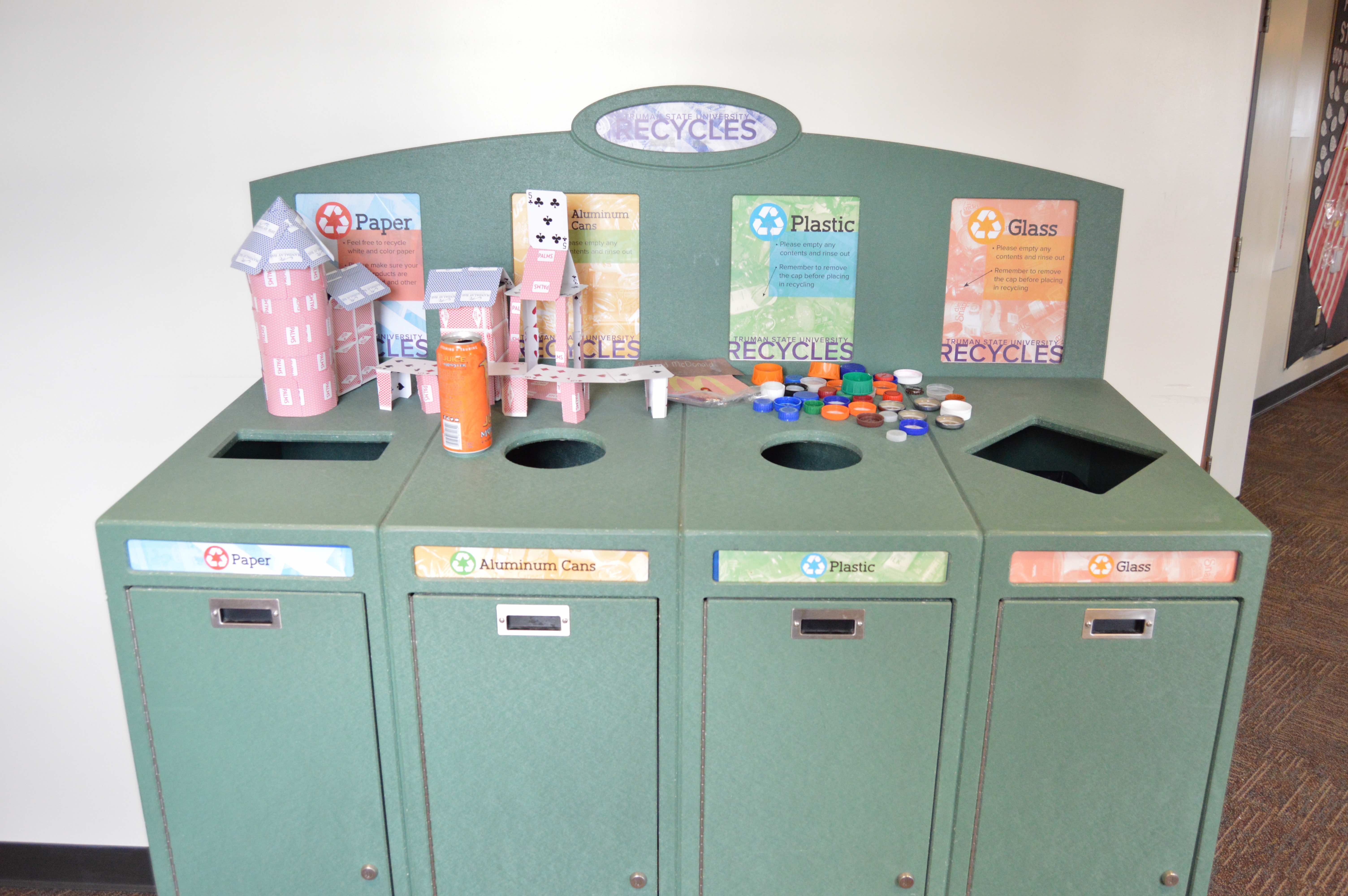
Hundreds of students lined a lush, green Quad on a particularly sunshiney Earth Day, interested and energized about making a difference to help the planet.
Freshman Ben Grabner, president of the Environmental Campus Organization, is part of the many different groups and organizations on campus that have turned their passion for environmentalism into actions.
“We’ve only got one Earth. Why shouldn’t we do the things we can now to protect it instead of leaving trash heaps for our kids?” Grabner said.
Grabner, like many new students, sought organizations that fit his interests, like investing in environmentalism, and became president within his first year. He already had a blast meeting and making friends with people who are as passionate about sustainability and protecting the environment as he is.
One such event was the MO Love Conference hosted by Truman State University hosted, where universities statewide sent representatives to have a conference to share ideas about sustainability and making schools greener.
“It was great to see people from all over the state and country doing the same exact work we are but doing it on a much larger scale,” Grabner said. “And it was refreshing to hear their ideas.”
The purpose of ECO is to promote sustainability on campus and educate students about environmental issues and ways that they can participate in more sustainable practices while at Truman. Grabner said one of the ways ECO promotes sustainability on campus is by hosting events and educating students. During Earth Week, ECO did collaborations with the Sustainability office and other groups, including Bulldog Biodiesel, health science capstone students, the Wildlife Association, and the Veggie Club. Throughout the academic year, ECO works with the Bike Co-op and sends volunteers to help the Stream Team.
One of ECO’s future projects is encouraging Truman to adopt a carbon neutral petition so the school can divest from carbon sources, such as fossil fuels, and invest in sustainable options.
Grabner said students can be more green on campus by placing food waste in compost containers located outside all dining halls. There’s an upcoming bike share program which gives students the option of riding to the grocery store or around campus. All dorms also offer recycling offered at all the dorms for glass, paper, plastic and aluminum.
“Just make sure that you dispose of them in the proper containers so it’ll make it easier for employees to collect them,” Grabner said.
There is a minor available for students who are interested in learning about the forces that shape both the environment and the living things that live there. Assistant professor of biology Ben Wodika is on the committee for the environmental studies minor. In this minor, students take a lot of interdisciplinary classes that makes use of their knowledge and skills, Wodika said.
Typically there are a lot of science students who show interest, especially biology majors. Several courses are student-led, and their students get hands-on experience in environmentalism. Students who pursue this minor also get to apply their knowledge to organizations such as Bulldog Biodiesel, the Compost Project and the Bike Co-op.
To be more eco-friendly, Wodika recommends asking questions and doing research so students can understand what they are talking about. He said there is a lot of misinformation out there about climate change, so decisions should be based on data and not raw emotion.
“The data is clear,” Wodika said. “And as a person who has children and as a person who has a vested interest in our planet and all the people and creatures who live on it, I think it makes sense to address the overarching issue that climate change presents.”
For students looking to go beyond campus for environmentalism, there is the Citizens’ Climate Lobby. Sharon Bagatell is the chapter leader of Citizens’ Climate Lobby in Northeast Missouri and is also the co-state coordinator. The Citizens’ Climate Lobby, as the name suggests, works primarily on lobbying at state and national levels.
Specifically, Citizens’ Climate Lobby is lobbying for the Carbon Fee and Dividend proposal which would place a fee on fossil fuel sources, such as wells and mines. The fee would start at $15 per ton of carbon dioxide emissions and increase steadily by $10 each year. All the fees returned would go to American households in the form of a monthly check. With the money households receive, they could invest in whatever they choose, such as solar panels for their homes.
“It’s a market-based solution to climate change, and it could really make a difference in our carbon emissions,” Bagatell said.
Nationally, Bagatell and the organization hold meetings with congressional members and senators. Locally, aside from work she does with her chapter, Bagatell reaches out to the media via letters to the editor, hosts presentations, tables events and talks to people who are willing to learn about the environment. Bagatell says the organization specifically does grassroots outreach to community leaders including business, school and faith.
The Citizens’ Climate Lobby is non-partisan and meetings tend to draw people who are interested in the environment, Bagatell said.
To reach out to people, Bagatell says that she treats people with respect and does not argue with science. She tries to discover what is important to people, such as the loss of certain species or concerns about future generations.
“We try to understand where people are coming from and what their values are,” Bagatell said. “Then we find what our common ground might be.”
Bagatell said the greatest amount of carbon emissions are actually embedded in the everyday products that are purchased, so everyone should be very conscious about packaging and not throw things away so hastily. People can also look for alternate routes of transportation, such as walking or biking more.
“Climate change impacts all realms of life from food to national security,” Bagatell says. “And there are simple things that people can do to reduce their carbon footprint.”
